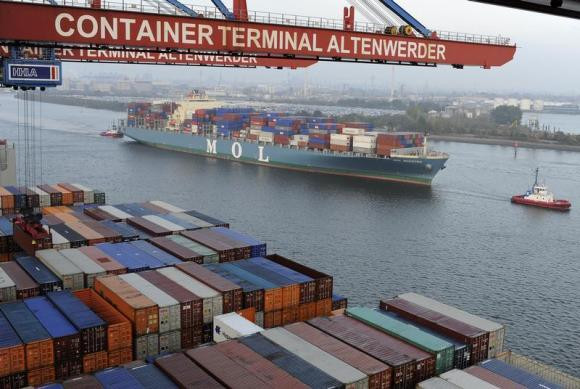Weaker euro and oil price slide to boost German growth says IMF

Weakness in the common currency and cheaper energy prices will help Germany register faster growth rates ahead, according to a survey report by the International Monetary Fund.
"The economic outlook appears promising for Germany, which is reaping the benefits of euro depreciation and lower energy prices," the IMF statement released on 15 July showed.
It predicts an annual GDP growth of 1.6% for 2015 and 1.7% for 2016.
The euro has broken below the 1.20 support zone against the dollar in 2015 and at the current level near 1.1000, the single currency is down 9% so far in 2015.
The IMF had lowered its world GDP forecast in its July update of the World Economic Outlook (WEO) from the April estimates.
The world economic output is now projected at 3.3%, down by 0.2 percentage points in the April WEO. The 2016 forecast is kept at 3.8%.
The IMF said in the last week's WEO update that the deceleration in the US and Canada will mainly drag the global GDP lower and added that risks to global economic activity are still tilted to the downside.
The German government has stepped up plans to increase public investment, including a fund to help municipalities with less financial firepower. Further investments will be made in public transport, digital infrastructure and energy efficiency
In addition to the favourable currency and energy prices, government's budget surplus will also help Germany through increased public investment, IMF survey showed on 15 July.
In Germany, public debt is on track to fall below 60% of GDP by 2020, according to the report.
It said: "The German government has stepped up plans to increase public investment, including a fund to help municipalities with less financial firepower. Further investments will be made in public transport, digital infrastructure and energy efficiency."
More women in full-time employment and an improvement of output in the services sector could help the eurozone's largest economy, according to the IMF.
"If women worked the same average hours as men, potential output would increase by as much as 7.5%, the report said.
Enrica Detragiache, IMF mission chief for Germany, added: "Boosting public investment, women's employment, and competition in the services sector now would help face the challenges that loom further ahead."
© Copyright IBTimes 2025. All rights reserved.


















